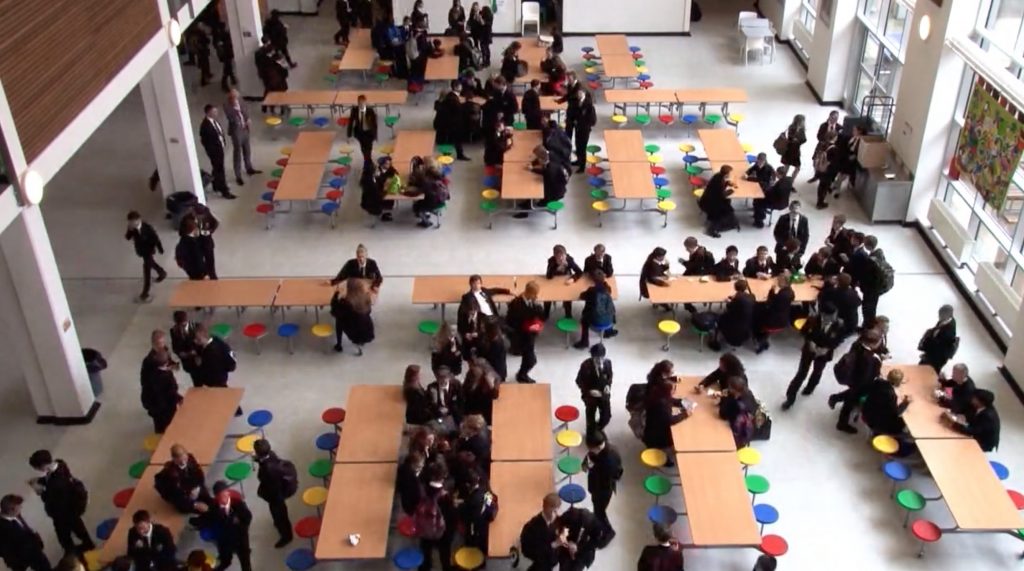
Almost seven in 10 children who go to state secondaries in Salford are attending an underperforming school, new government figures reveal.
The latest school performance tables show that only three state-funded secondary schools in Salford have achieved progress scores above national average.
The Department for Education’s data showed nine schools scoring “well below” average.
That means that out of 2,044 students attending state secondary schools in Salford, 1,398 (or almost 7 in 10) attend schools that have been scored “well below average” from the Department of Education.
These figures include academies and maintained schools, but not special schools.
Judith Elderkin, assistant secretary of the Salford division of the National Union of Teachers (NUT), said: “What we need is adequate resources. The lowest performing secondary schools also serve the most deprived areas in the city.
“Deprivation covers a whole range of issues, not just money, but also housing, language, movements. There are lots of issues that the schools in these areas have to address.
“We’ve had quite a lot of pupil movement and migration, and asylum seekers. The percentage of youngsters for whom English is a second language is also rising, as are the levels of poverty.”
Salford schools also underperform in terms of English and maths GCSE results. The percentage of pupils achieving grade 5 or above (the equivalent of a C or higher under the old grading system) in these subjects is below national average (39.8 percent) in all but three schools.
Ms Elderkin added: “There is an urgent need to look at the funding of schools. Over 80 percent of Salford schools (secondaries as well as primaries) have got less money now than they had in 2015. And yet staff salaries have risen, energy costs have risen, premises costs have risen. So they’re facing an uphill struggle, financially.”
Ms Elderkin does not believe that turning schools into academies is a solution to the problem.
She said: “It’s fair to say that there is no magic bullet here. And there is no evidence that academies perform any better than maintained schools.”
Most secondary schools in Salford are now academies, which means they are run by a private trust and funded directly by central government, whereas maintained schools are funded and controlled by the local authority.
Academies can benefit from private finance investment, but this also means that their buildings and facilities are owned and run by private companies.
Many academies were failing maintained schools which were ‘forced’ to change status, in the hope that it would help them.
Ms Elderkin added: “Academisation and privatisation of local land buildings and assets, to private, unelected bodies controlled by Whitehall, is not the panacea for education issues. Structural change is no guarantee that things will be better.”
She noted that Salford primary schools perform at or around national average, and that most of them are maintained schools, not academies.
Ms Elderkin stated that the way London inner-city schools have been evolving is the example to follow. She said: “If you look at the tables, a lot of London inner-city schools, particularly schools serving areas with high levels of deprivation, just like Salford, are actually doing very well.
“This is possible because about ten years ago, there was a huge investment in looking at working cooperatively. There was an investment in teaching and learning, there was an investment in teacher education.”
While Salford schools benefit from good infrastructures, Ms Elderkin said the focus should always be on teaching and learning: “Most of our secondary schools enjoy absolutely excellent buildings and good facilities. But we need to look at the size of classes for example.
What is actually needed is the investment and support not only to help schools, but to actually help pupils attain a higher level. We’ve done it in the primary sector, in Salford, and that focus does need to be on the secondary sector.
Ms Elderkin also argued that there is a need for curriculum reform, and that too many creative or vocational subjects are no longer offered to pupils who would benefit from them.
She said: “The curriculum is a straitjacket for a lot of children – particularly for children who are finding learning very difficult. The opportunity for them, at fourteen, to have a different curriculum pathway, this has been closed by this government.”
The Department For Education and Salford City Council have been contacted for comment.














Recent Comments